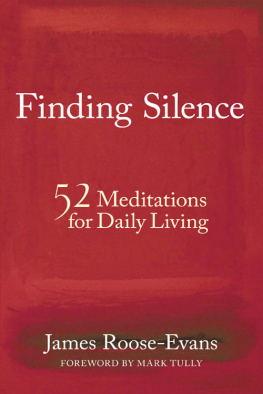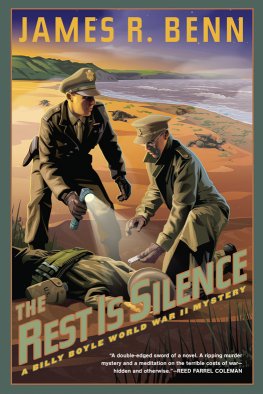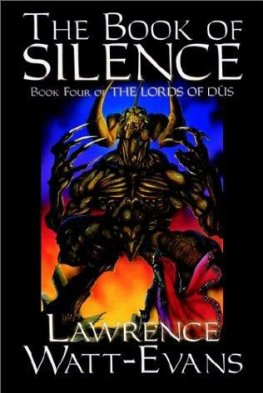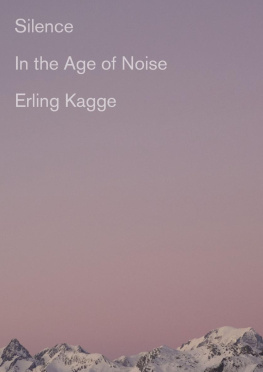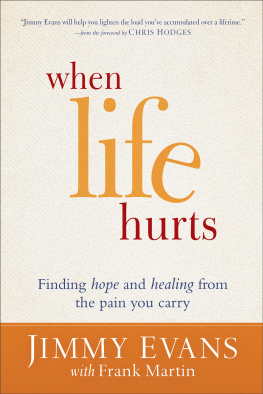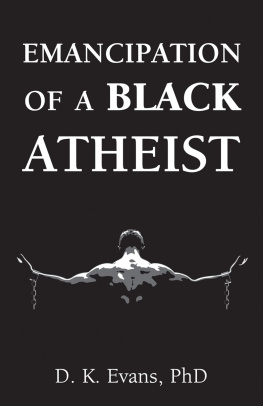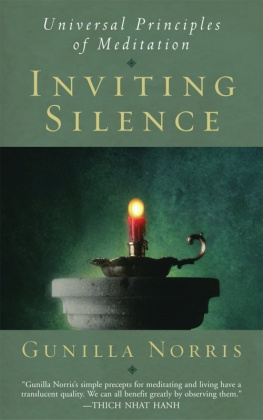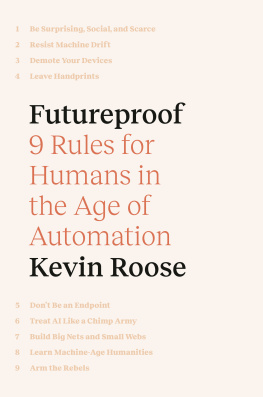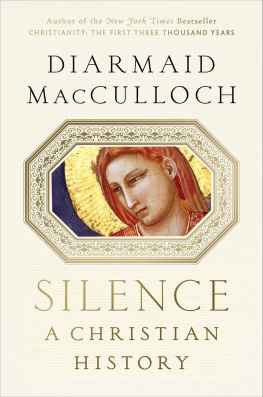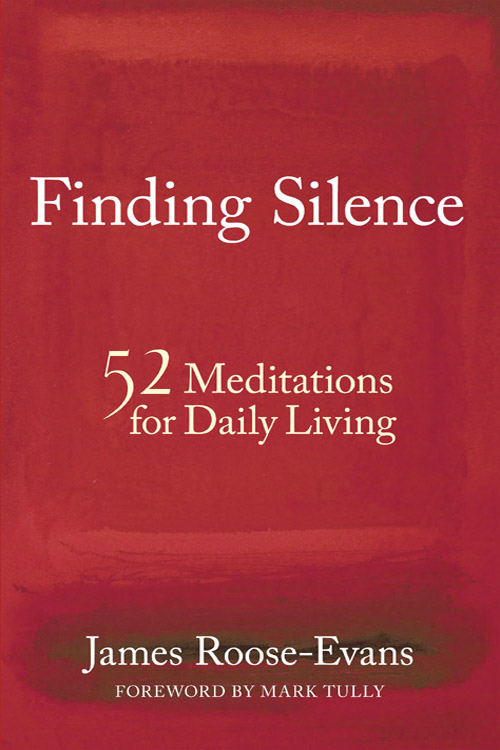Finding Silence
Finding Silence
Meditations
for Daily Living
James Roose-Evans
First published in 2009
The History Press
The Mill, Brimscombe Port
Stroud, Gloucestershire, GL 5 2 QG
www.thehistorypress.co.uk
This ebook edition first published in 2011
All rights reserved
James Roose-Evans, 2009, 2011
The right of James Roose-Evans, to be identified as the Author of this work has been asserted in accordance with the Copyrights, Designs and Patents Act 1988.
This ebook is copyright material and must not be copied, reproduced, transferred, distributed, leased, licensed or publicly performed or used in any way except as specifically permitted in writing by the publishers, as allowed under the terms and conditions under which it was purchased or as strictly permitted by applicable copyright law. Any unauthorised distribution or use of this text may be a direct infringement of the authors and publishers rights, and those responsible may be liable in law accordingly.
EPUB ISBN 978 0 7524 7027 6
MOBI ISBN 978 0 7524 7028 3
Original typesetting by The History Press
For Celia Read who initiated the London Meditation Group, and to its members, as well as all those other groups who meet to share in the silence beyond the silence
In meditation go deep into the heart
Lao Tzu
Life is so good, despite everything, when you are awake in the depths of the heart
Abhishiktananda


Contents


Foreword
by Mark Tully
In one of his meditations James quotes the motto of the Dominicans, the intellectual order of the Roman Catholic Church. Translated from Latin the motto is to contemplate and to pass on to others the fruit of our contemplation. That is just what James has done in Finding Silence. Each of us who reads these meditations will find fruit which is particularly nourishing for us, because the tree which bears the fruit is James experience. These are not impersonal, or theoretical meditations. Meditations for Daily Living, they are grounded in his experience of life.
James has found that meditation can still the busy mind, which he compares to chattering monkeys leaping from tree to tree. It is also a way to the centre in each of us, a centre in which we can be given answers to the questions which disturb us fundamentally, often without us realising it. They are the questions about our identity: Who am I? Where have I come from? Where am I going? The centre is also a refuge from the blows that descend on our fragile egos. James knows all about those blows because he has worked all his life in the theatre, a precarious, insecure profession, full of rivalry and jealousy.
My career of forty years in journalism, a profession which also often involves more than its fair share of blows to the ego, has been a roller-coaster of highs and lows, inflations and deflations. I have tried to see the inflations and the deflations, particularly the inflations, as dangerous imposters, to use Kiplings word, but I still find myself sometimes nursing a bruised ego, or suffering a hangover from a high. I suffer from the fear of failure, which seems to me to come from the fear of a blow to the ego better even not to try than to risk is the way I sometimes find myself thinking. In this way, I found the meditation Death Was Like a Game I Could Not Win particularly relevant to my life. In this meditation James describes the fear of failure which drove the renowned rugby international Jonny Wilkinson. He didnt know how to free himself from it, and because his play was so obsessive he never knew what it meant to be really happy. After a series of injuries Jonny Wilkinson came to Buddhism and meditation where he found his fulfilment was no longer about self-gratification, but about seeing the happiness of others. He came to believe that his fear of failure had arisen out of an even deeper fear of death, an inability to answer one of the questions that James has found can be answered in the centre to which meditation leads us. Jonny Wilkinsons fulfilment in seeing the happiness of others leads me on to James insistence that meditation is not intended to produce the feel-good factor, nor is it intended to be a form of self-analysis. As the Dalai Lama says, meditation and the pursuit of wisdom should always issue forth in acts of compassion for others. That means that we should listen to others as well as listening inwardly.
James says, lifes real journey is towards the kind of person each of us is meant to be. He speaks of Jungs belief that each child comes into the world with a blueprint for life. In the meditation A Tree Being Motionless Birds Come To It we see that through contact with our inner resources we gradually discover that our life has been going somewhere, however blind we have been to its direction, and however unhelpful to it we ourselves have been. Coming to understand our own personal blueprint, reading the signposts which point to the next stage in our lives, recognising the blockages which tell us we have taken a wrong turning, are all essential if we are to avoid trying to become or to remain the person we are meant to be. As James puts it, We have to learn how to co-operate with time and destiny, allowing life to shape us rather than trying to shape it to our own ends. This surely is the opposite of how our modern individualistic, competitive, culture, tells us we should live.
Herein lies an apparent contradiction. The idea of each of us having a blueprint for life emphasises our individuality. James even discusses the possibility that we might each have our own angel. At the same time meditation has given him an acute awareness of his being part of something infinitely greater than himself. In the meditation Look At The Stars! Look, Look Up at the Skies! he writes, meditation sharpens the sight and the insight and deepens our sense of wonder, whether we believe in God or not. Believers and unbelievers alike can contemplate the mystery of the universe with awe and humility. Looking up at the stars at night in remote parts of India where the sky is clear and not polluted by artificial light I have sometimes been overcome with a feeling of being an infinitely small part of something immeasurably large, yet mattering, for all that. Being a Christian I believe that to be an experience of God.
James is an Anglican priest yet he does not set out to convert the reader. He believes, it is in the silence of meditation that we begin to transcend our differences of opinion, culture, dogma, and personality. He acknowledges that even differences between those who believe in God and those who dont can be transcended, and points out that even atheists report having spiritual experiences. Most unfortunately, as I see it, there are those, and they are not small in number, who have opened a gap between spirituality and religion. James book is intended to be a bridge over that gap. It is a bridge because its written by an avowedly religious man yet someone who any reader will recognise as deeply spiritual too. For him each religion is a sign pointing in its own way to the divine mystery.
The divine mystery can not be defined in terms that would satisfy a scientist, or indeed a lawyer, but it can be portrayed in music, in art, and in poetry. Nature displays it, too, and James meditations bring home to me, above everything else, an awareness of our oneness with nature and hence our oneness with the universe. James is an artist, a highly respected theatre director, and someone who has read deeply, so he has illustrated his meditations with an abundance of quotations from poetry and literature, but perhaps my favourite quotation is one that he has written himself: One has only to sit quietly in a garden in spring, in the early hours, and become aware of invisible lines criss-crossing the garden as birds flit and whirr about their tasks, never colliding. We too are birds of passage and yet we are part of the whole. We move through time and yet eternity is all about us. We are all a part of the eternal pattern and rhythm of the universe.

